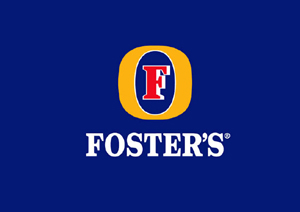Miller agrees to brew Foster’s Lager in the United States
Remember Löwenbräu? The famous German imported beer that started to decline once it was brewed in the U.S. Now Foster’s is tempting fate as it entered into an agreement with SABMiller to brew the Foster’s Lager brand in two Miller breweries.
Miller Brewing, the U.S. division of SABMiller, has entered into a 10-year licensed-brewing partnership with the Foster’s Group as of November 2007.
Under the new arrangement, brewing of the Foster’s Lager and Special Bitter brands sold in the U.S. will be transferred from a Molson Coors brewery in Canada to Miller’s breweries in Fort Worth, Texas, and Albany, Georgia, SABMiller announced.
It will be remembered that in 2006 the Foster’s Group sold the rights to the Foster’s brand to Scottish & Newcastle, reserving for itself only certain geographies, such as the U.S. There Miller and the Foster’s Group have been sales and marketing partners since 1993. Previously, the brand was brewed under license by Molson for sale in the U.S, courtesy of a 1980s arrangement when Foster’s owned a stake in Molson. Although Foster’s decided to sell the stake in 1997 to cut debt, the licensing agreement was upheld. However, the Foster’s Group opted to terminate their contract following Molson’s merger with Coors. Molson will cease the production of Foster’s brands in October this year.
The move to U.S. production will reduce Foster’s freight costs, enabling the business to put additional investment behind the brand to drive long-term growth, Miller’s parent company SABMiller said.
Market observers in the U.S. have been speculating what kind of impact the move to domestically brew the beer will have on the brand’s import image and, even more importantly, whether Miller and Foster’s will be able to reverse the brand’s flagging sales.
According to Beer Marketers’ Insight, Foster’s has declined 225,000 barrels, or 30 percent since 2002, while the imported beer category grew more than 25 percent during same period. Foster’s fell to 460,000 barrels in 2006, and dropped from the number 10 position in the imported beer ranking to number 15 spot.
Foster’s will be the largest import brand to change to U.S. brewing since Löwenbräu (which was, incidentally, also brewed by the Miller Brewing Company). That’s why all eyes are on this interesting experiment. Many market observers – rightfully? - fear that publicity over the source change could dilute the brand’s “import” image. To outsiders, it does appear strange that Foster’s has been considered an import in the U.S. at all, given that for many years it has been brewed just across the border in Canada. It may seem pedantic to point this out, but Canada is not Australia, the country in which the brand originated. However, one has to bear in mind that nearly all imports sold in the U.S. are brewed in their home country. The U.S. is a market where the word “import” still has meaning – even if the import comes from Canada.
The sad fate of Löwenbräu in the U.S. that was conjured up by the new agreement was told in rather vivid colours by Philip van Munching in his book Beer Blast (1997). According to van Munching, in the 1970s, Löwenbräu was head to head with Heineken in the import category. While Heineken rose to become the leader in the import category, the Germans decided to partner with Miller and allow Miller to pitch Löwenbräu against Anheuser-Busch’s Michelob in the super premium category (super premiums are priced higher than so-called premium beers like Budweiser but not as high as imports), while brewing it locally.
Unfortunately, Miller did not go out of its way to make it clear that Löwenbräu was locally brewed. Many restaurants continued to list Löwenbräu as an import, writes van Munching. That’s why Anheuser-Busch could file a complaint with the Federal Trade Commission, arguing that Miller was lying to the consumer about the brand’s origin. Moreover, Anheuser-Busch claimed, Miller was not even making a good copy of the original as Miller had decided not to stick to the Reinheitsgebot when brewing Löwenbräu. In the end, Löwenbräu had to change its label and its television advertising added the phrase: “a fine American beer.” For Löwenbräu, that was the beginning of the end in the U.S. In 2002 the licensing contract with Miller was terminated. In 2004 the Munich Löwenbräu brewery was bought by InBev.

